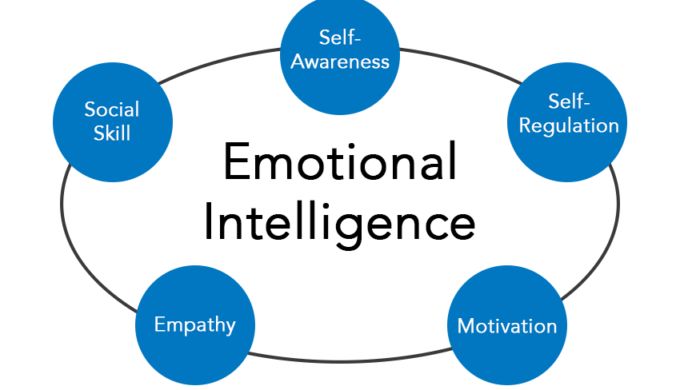Emotional Intelligence
Jul 29, 2019 • 36 views

In the world of millennials, prioritisation of Emotional Intelligence (EI) or Emotional Quotient (EQ) is imperative more than Intelligence Quotient (IQ). We all have heard about the IQ levels of great scientists like Albert Einstein, Stephen Hawking, etc. But all that was back in 19th century. The world has a new favourite, i.e. emotional intelligence (EI) or emotional quotient (EQ). I assume that you all are aware about the term intelligence quotient (IQ), if not, IQ is the reasoning ability, memory and time management capability of an individual. The ability to analyse and predict solutions to the given questions using available information and appropriate logic.
What is Emotional Intelligence (EI) or Emotional Quotient (EQ)?
EI or EQ is the ability of an individual to manage his inner emotions, differentiate them, and recognize those emotions in order to react and acknowledge them. EQ also includes guiding our own behaviour so as to adjust and adapt according to the surroundings.
In an era of digitization, where we develop and automate machines to take over duties of a human being, we never quite realize that we fail to recognize our emotions. Emotions and feelings are the integral parts of human mind. Have you ever considered the fact that mind cannot be found physically in our brains? Mind, emotions and feelings are the parameters that separate us from machines. Thus, emotions are way more important than we realize.
The term EI was made popular by a psychologist Daniel Goleman in his book Emotional Intelligence: Why It Can Matter More Than IQ, in which he acknowledges the power of EI. Goleman lays five basic components of emotional intelligence:

Self-awareness: When we’re self-aware, we know our strengths and weaknesses, as well as how we react to situations and people.
Self-regulation: As individuals are self-aware, they can regulate their inner emotions and keep them in check as necessary.
Motivation: Individuals with high emotional intelligence tend to be highly motivated as well, which makes them more resilient and optimistic.
Empathy: Individuals with empathy and compassion are quite better at connecting with other people.
Social skills: Social skills of emotionally intelligent individuals show; they genuinely care for and respect others and get along well with them.
Needless to say, emotional intelligence is imperative for an individual as it showcases the ability to interact with social issues and society. EI or EQ is something that can be improved by working upon. Try to reflect your emotions and have a conversation about them with yourself. In that way, you may feel free to expose your insecurities. Once you recognize the insecurities, ask yourself for perspectives and reimagine emotions in every perspective. Observe your emotions as they flow through all the scenarios and opt the right one.
Unfortunately, in the age of technology, there is no adept tool that can possibly improve or energise our emotions. It is self-reliant and can be achieved by finding ourselves in the quest.
